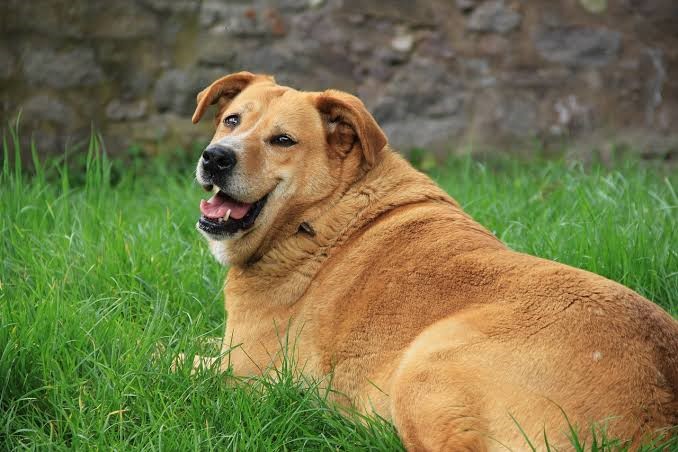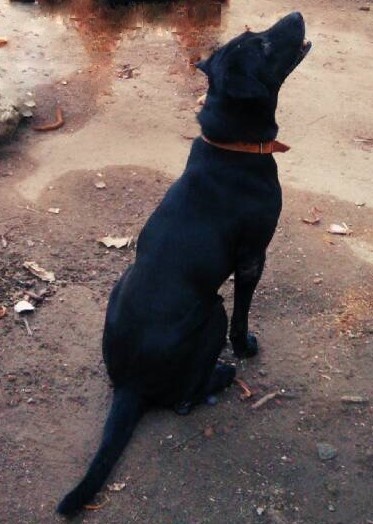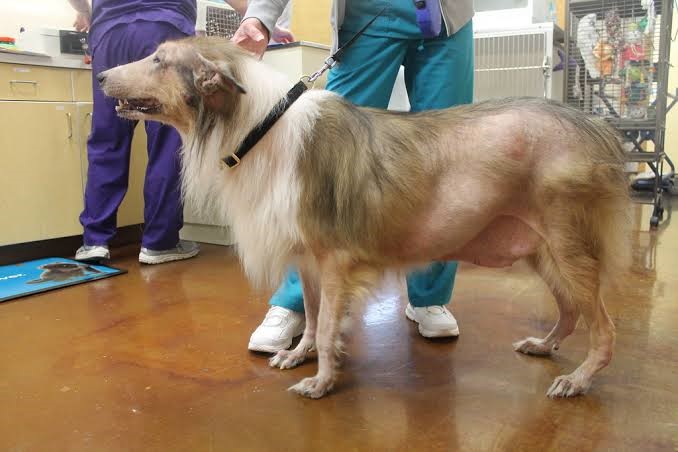6 REASONS WHY YOUR DOG MUST BE GAINING WEIGHT
Do you find your furry babies adorable when they are chubby or little over weight? Because I do! Like any other dog parent, I refuse to believe when someone points out that my babies have put on little weight. I like it when they are chubby, healthy and happy. So, at times we tend to be a way to liberal on their diet.
According to the survey conducted by the Association for pet obesity prevention (APOP) 2018, 56% of dogs were obese in the U.S. Earlier in 2016 when the same survey was taken it was found that only 54% of dogs were obese or over weight. The rise in the number of obese dogs is increasing not only in the U.S but also in other parts of the world. Obesity is a growing concern in this era. It is considered as a life style disease for humans as well as for our four legged friends.
Obesity has been defined as an accumulation of excessive energy storage in the form of adipose tissue sufficient to contribute to diseases (National Institute of Health 1985). It occurs when energy intake exceeds energy expenditure. This simply means if there is more intake of food and less activity it is definitely going to accumulate in the body. Weight loss can be rapid if the caloric intake is large. However, even a modest chronic excess in caloric intake can result in significant weight gain over a period of time. Therefore, caloric intake and energy expenditure should be well-adjusted.
6 Risk Factors of obesity
1. Lack of exercise
The energy we gain from the food should be well spent. If activity is minimum fat deposition increases. The level of activity is inversely proportional to the weight gain. Lack of activity can predispose to many health issues. It can affect the physical and mental wellbeing of the dog. Nowadays most of the companion animals are confined indoors, they rely on their caregivers to exercise them. These endeavours require time and commitment from the part of the caregivers.

2. Breed predisposition
Breeds like Labrador Retrievers, Miniatures Schnauzers, Dachshunds, Shetland Sheepdogs, Cocker Spaniels, Beagles, Basset Hounds, and Cairn Terriers are genetically prone to weight gain. In breeds like Labrador retrievers, the deletion of the 14base pair in the gene called Pro-opiomelanocortin (POMC) is mainly responsible for weight gaining tendency. This deletion in base pairs will disrupt the melanocyte- stimulating hormone and endorphin which is highly associated with the accumulation of adipose and fast weight gain. Mutation in the POMC gene is the main genetic factor that predisposes these breeds to obesity.
3. Age
Older dogs are often lethargic and sluggish. They spend most of the time resting rather than indulging in any high energy activities. As the body ages, the metabolic rate drops this increases the chance of putting on weight. Almost 70% of senior dogs are estimated to be obese. Due to the same reason they are much susceptible to other diseases.
4. Neutering
The answer to the question ‘ why do dogs gain weight after neutering’ is simple surgeries like castration and spaying otherwise called as neutering, has a positive effect on the weight gain. It is quiet common to find that the dogs who are neutered recently tend to gain weight drastically. This is because their metabolic rate drops when the sex hormones (androgen or estrogen) goes down. So when we feed them with the same amount of food as before will not be properly metabolised. The activity level of intact dogs is much higher due to these sex hormones. This is the reason why vets suggest neutering when there are aggression issues or hyper activity in dogs, which will make them much docile. Increased appetite is another reason why they tend to gain weight. Overfeeding and under exercising is one of the important reasons why they become obese.
Goofy is an aggressive and possessive dog of mine, due to his temper we decided to castrate him. Things were well for two weeks. Later his appetite drastically increased, became very demanding for food. He started eating his food as well as his fellow mate’s food. Since he is the alpha in the pack others had to share their food. The mistake we made was that we fell for those begging eyes. As castration led fuelled his voracious appetite, he kept on begging for food, and we were too liberal on his diet. He stopped playing and roaming altogether. The activity level was zero. Then we had to put him on a diet as well as exercise him on a regular basis to reduce the weight that he gained.

5. Endocrine disorders
Diabetes Mellitus and Hypothyroidism are the two main endocrine disorders that can cause obesity in companion animals.
Diabetes Mellitus
In simple terms, diabetes occurs when glucose metabolism is faulty. Insulin is an essential hormone produced by the pancreas (beta cells) which controls the blood sugar level and energy absorption. It allows the cells to absorb glucose from the blood. So if there is lack of insulin it may result in elevated glucose levels in the blood and inability of the tissues to receive the glucose when they need. Due to the metabolic dysfunction in diabetic patients it can cause weight gain. Often diabetes can be accompanied by thyroid dysfunction too, in such situations it is mandatory to discuss the patient’s diet plan and therapeutic medical management with the veterinarian.
Hypothyroidism
The thyroid gland releases hormones like thyroxine (T4) and triodothyrine (T3), it regulates the metabolic rate (how the body uses the energy). Thyroid disorders are commonly seen in middle aged and senior dogs. There is hyperthyroidism which is caused by too much activity of the gland and hypothyroidism which is caused by too little or not enough activity of the gland. Hyperthyroidism is commonly seen in cats whereas hypothyroidism is commonly seen in dogs. Often thyroid disorders will cause weight gain. So, before you put him on a diet it is mandatory to rule out all the disease conditions. If your dog has increased appetite, weight gain, flaky skin lesions, hair loss, and other skin issues quickly report it to the veterinarian and get him tested for thyroid function.

6. Use of certain drugs/medicines
In many medical conditions, your vet has to prescribe certain drugs that are necessary for the health condition of your pet but it can have mild side effects like weight gain. Usage of such kind of medicines or drugs is inevitable. We dog parents always choose their health over their weight gain. Such medicines include corticosteroids, these can alter the metabolism and fat deposition of the body. This can increase the appetite, extra deposition of fat which leads to the obvious weight gain.
One such drug is phenobarbital it is basically an anti-convulsant drug that is normally prescribed for convulsions, canine distemper, seizures, etc. this drug can decrease the satiety (feeling of being full) which may lead to overeating and weight gain.
SUMMARY
Obesity or overweightness can happen in any phase of your pet’s life. It is associated with an increased risk of diseases and reduced life expectancy. The reasons behind the weight gain can vary from dog to dog. The above mentioned are the prime reasons why there is weight gain.
Weight management can be a tiring process it needs a lot of commitment for you as well as for your pet. Results might take months. Dedication is very vital for every single weight loss program. Key elements for a weight reduction program are taking down a thorough dietary history, tailoring the diet and monitoring the weight loss. These three steps will help to achieve the goal in a systematic manner.